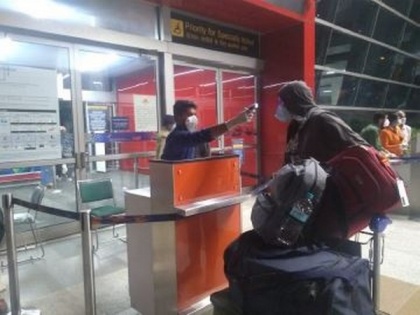Air passenger and cargo markets continue to recede due to border closures: AAPA
By ANI | Published: September 24, 2020 06:03 PM2020-09-24T18:03:51+5:302020-09-24T19:00:55+5:30
International air passenger demand stayed severely depressed in August as a result of ongoing border restrictions, preliminary figures released on Thursday by the Association of Asia Pacific Airlines (AAPA) showed.

Air passenger and cargo markets continue to recede due to border closures: AAPA
International air passenger demand stayed severely depressed in August as a result of ongoing border restrictions, preliminary figures released on Thursday by the Association of Asia Pacific Airlines (AAPA) showed.
There was little indication of recovery in sight for the remainder of the year unless coordinated actions are taken to restore global connectivity, said AAPA.
Asia Pacific airlines carried only one million international passengers in August or just 3 per cent of the 34 million passengers carried in the same month of 2019.
Offered seat capacity was relatively higher at 9.6 per cent of the levels operated last year. The average international passenger load factor was 35.8 per cent for the month.
International air cargo demand in August as measured in freight tonne-kilometers registered a 19.3 per cent decline year-on-year, reflecting the ongoing weakness of global trade flows.
Freighter operations remained active but significant cuts in the numbers of passenger flights led to a 33.4 per cent year-on-year overall decline in offered freight capacity.
As a result, the average international freight load factor increased by 12.3 percentage points to 70.6 per cent for the month.
AAPA Director General Subhas Menon said the latest traffic results underscore the need for governments to review existing restrictions and implement harmonised protocols based on objective risk assessments.
"Uncoordinated measures and abrupt changes to protocols only serve to diminish travel confidence, with wider repercussions that impact consumers and businesses far beyond the aviation industry," he said in a statement.
( With inputs from ANI )
Disclaimer: This post has been auto-published from an agency feed without any modifications to the text and has not been reviewed by an editor
Open in app